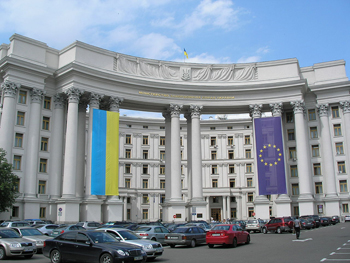Štefan Füle, European Commissioner for Enlargement and European Neighbourhood Policy, paid an official visit to Kyiv on February 7 to discuss one topic: whether Ukraine is ready to sign the EU Association Agreement. After the visit, the European Union did not make a formal statement, but 19 strict demands for Ukraine, also known as the Füle’s List, appeared in Ukrainian media. It is not an official document; however, both sides agree that it will be used for assessing Ukraine’s progress in implementing sectoral reforms. In particular, the Füle’s List provides for monitoring of the strength and efficacy of Ukraine’s anticorruption campaign.
Authorities reacted to the list by putting 10 of 19 demands on their agenda of priorities. The government also declared its readiness to implement the fourth part of the Füle’s list (consultations and cooperation with Brussels and opposition) and half of the third part that deals with reforms. The most attention is on the reform of the state finances administration system, international aid distribution, and economic and business society preparations for the possible admittance to the free trade zone with EU. Yet the Cabinet of Ministers Anticorruption Plan consists only of one item – the support of the draft law dealing with some new articles on bribing to be added to the Criminal Code
That leaves open the question, is Ukraine too corrupt to have the ability to fulfill the EU demands?
The key trends of the 2012–2013 are:
- The National Anticorruption Committee under the President of Ukraine is inert. This institution has the most authority in coordinating anticorruption actions. Moreover, the Ukrainian side tries to pretend that the National Anticorruption Committee (which is in fact the consultative body under the President) is the only independent anticorruption body aiming to coordinate the state institutions responsible for fighting corruption. However, even given these conditions, the National Anticorruption Committee hasn’t held a meeting for over a year. The President only produces documents on amendments to the Committee membership and updates on its work approaches.
- The state program for corruption fighting is worth less than the paper it has been printed on. The money that was announced for implementing the anticorruption program with the total budget over UAH 800 million (80 million euros) has never actually been assigned. As a result, the average score for program activities implementation is 2.7 of the possible 5, where 5 represents the best implementation. That shows the program’s activities are not always reasonable, and that progress indicators are not measuring the essence of the activities.
- The changes in legislation on public procurement have put billions of euros in public money out of public view. For instance, in 2012 alone the Parliament of Ukraine approved eight bills that considerably changed rules surrounding public procurement. There were a number of gradual exclusions from the profile tender law. One of the primary ones was the exclusion of procurements from state or community-level enterprises, as well as companies where the state owns more than 50 percent.
The role of executors of state anticorruption policy was taken up by NGOs who can provide civic control over public procurements. That leads to the prevention of theft; legal consultancy for victims of corruption; advocacy of legislative regulations aimed at developing ideas for proper governance in Ukraine, etc. However, the level of the responsible state bodies’ reaction for the facts provided by civic controllers remains extremely low. The law-enforcement agencies only reluctantly open criminal cases based upon civic activists’ and journalists’ reports.
This all means that Ukraine’s implementation of the anticorruption demands listed by Füle might never make it off the paper it was written on. Either way, we recommend a number of specific steps.
- Make the Unified State Register of Persons Called to Account for Corrupt Actions (a list of corrupt persons) publicly available and amend the Law ofUkraine“On Protection of Personal Data.”
- Provide openness on public servants’ assets, receipts and expenditures declarations. These should be published on official websites.
- Initiate real control over the declaration of public servants’ assets, receipts and expenditures.
- Initiate legislative reform of political parties and election campaign financing to try and reduce their dependence on private financing and to reduce corruption influences.
- The President of Ukraine should finally decide on who will coordinate anticorruption policy and will be politically responsible for its implementation, and increase the authority of this coordinating body.
- Provide real financing for the State Programme for Prevention and Combating Corruption 2011–2015, having previously revised its priorities.
















 Connect with us on Facebook
Connect with us on Facebook Follow us on Twitter
Follow us on Twitter